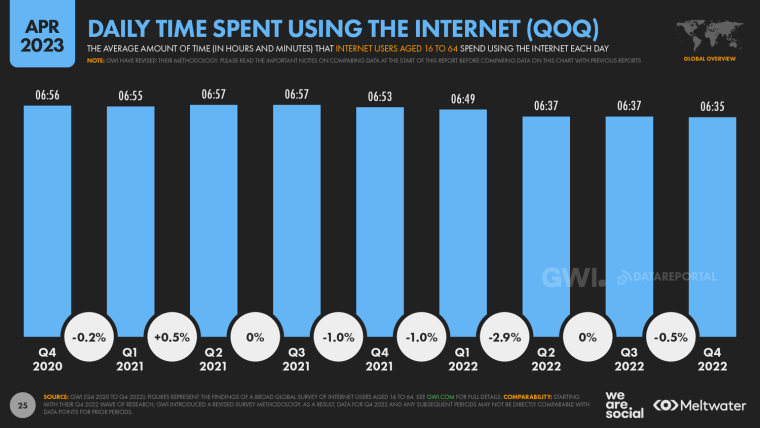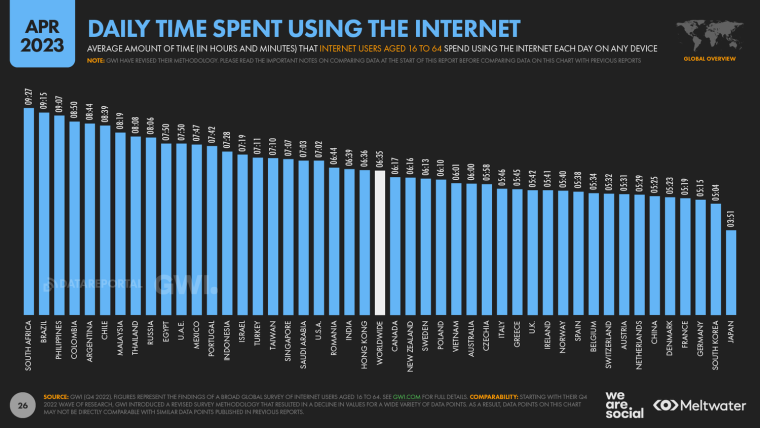
The amount of time the world spends online continues to decline, though it is still considerably high.
According to a recent report by Datareportal, the average daily time spent on the internet has dropped by two minutes in the last year, from 6 hours and 37 minutes to 6 hours and 35 minutes.
The report, titled “Digital 2023 April Global Statshot,” also revealed that internet users have reduced their online activities by an average of 18 minutes per day since this time last year, resulting in a year-on-year reduction of 4.4%.
While this may seem like a small decrease, it’s worth noting that the trend toward more internet usage has been steadily increasing for years.
The report noted that despite the recent drop, the daily time spent online is still too high.
“We’re still spending an average of over 6½ hours per day using the internet, which is more than twice as much time as we spend watching television,” the report said, adding:
“The current average suggests that the world will still spend a combined total of 1.4 billion years of cumulative human existence using connected tech in 2023 alone.”
Daily Time Spent Using the Internet
The report revealed that South Africa, Brazil, and the Philippines have the highest average of daily time spent online, at more than 9 hours each.
The average time spent online in the US is seven hours and 2 minutes, compared to five hours and 42 minutes in the UK.
Japan has the lowest average time spent online at three hours and 51 minutes, followed by South Korea at five hours and 4 minutes.
The report also revealed that those aged between 16 to 24 years old have the highest internet usage time, spending between seven hours and 9 minutes to seven hours and 42 minutes of their daily time online.
On the other hand, those aged between 55 to 64 spend the least time online, using the Internet around five hours per day.
The report supports findings by Cross River Therapy’s research, which claimed Gen Z averages a whopping 9 hours of screen time per day.
Meanwhile, a large portion of most people’s screen time is on mobile devices, with mobile phones accounting for 95% of devices used to access the Internet.
Is High Internet Usage Cause for Concern?
The high internet usage rate might be a reason for concern as it can have adverse effects on mental and physical health.
Studies have shown that prolonged screen time can alter brain development, negatively impact sleep patterns, and lead to various health issues such as obesity, eye strain, and neck pain.
Moreover, the rise of social media addiction is particularly alarming.
Social media platforms such as Facebook, Instagram, and Twitter have become an integral part of our daily lives, with many people spending hours endlessly scrolling through their feeds.
This addiction can lead to feelings of anxiety, depression, and loneliness, as people feel the pressure to keep up with the curated and often unrealistic lives of others.
As reported, the US Surgeon General Dr. Vivek Murthy has issued an advisory warning about the potential harm social media poses to the mental health of children and adolescents.

